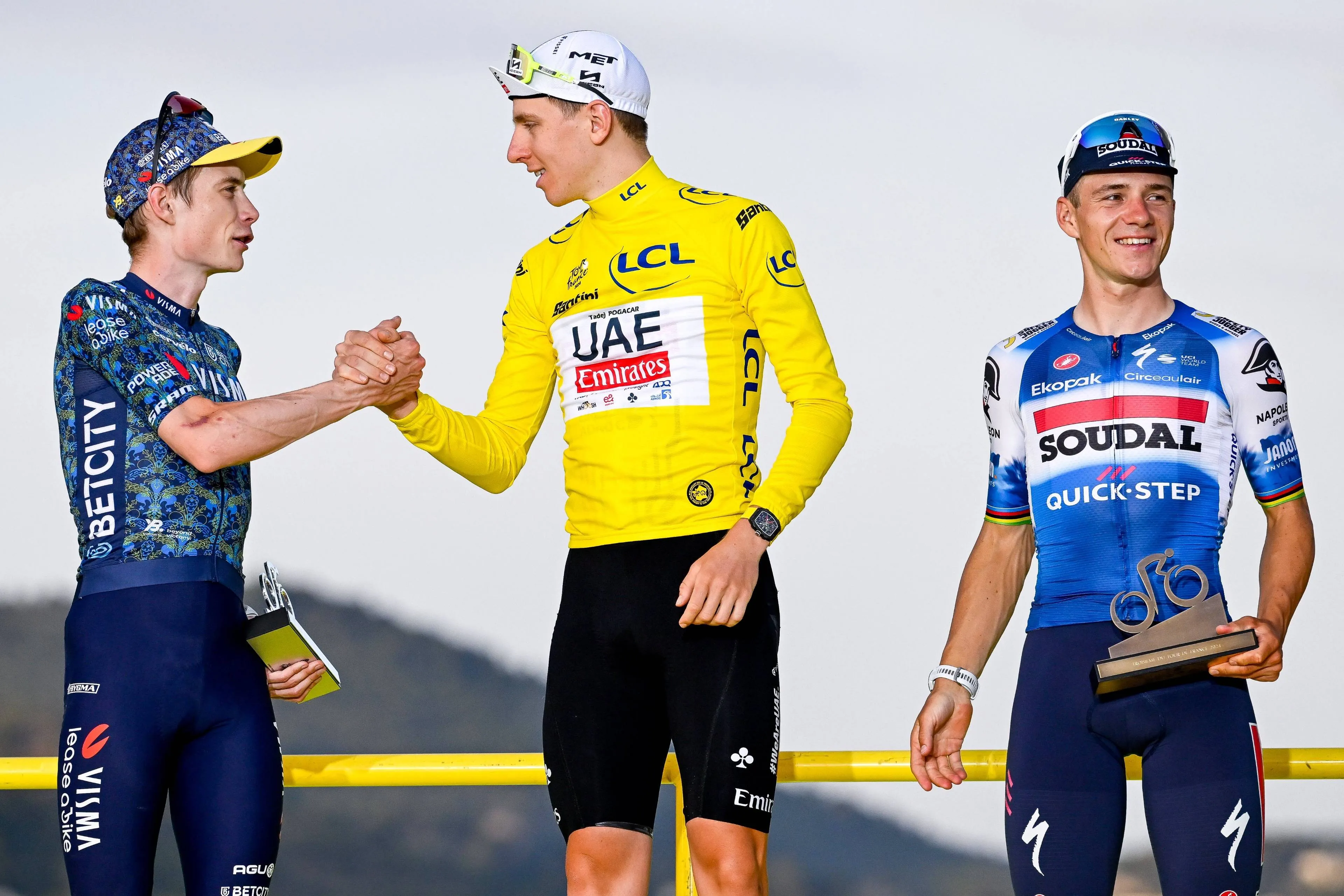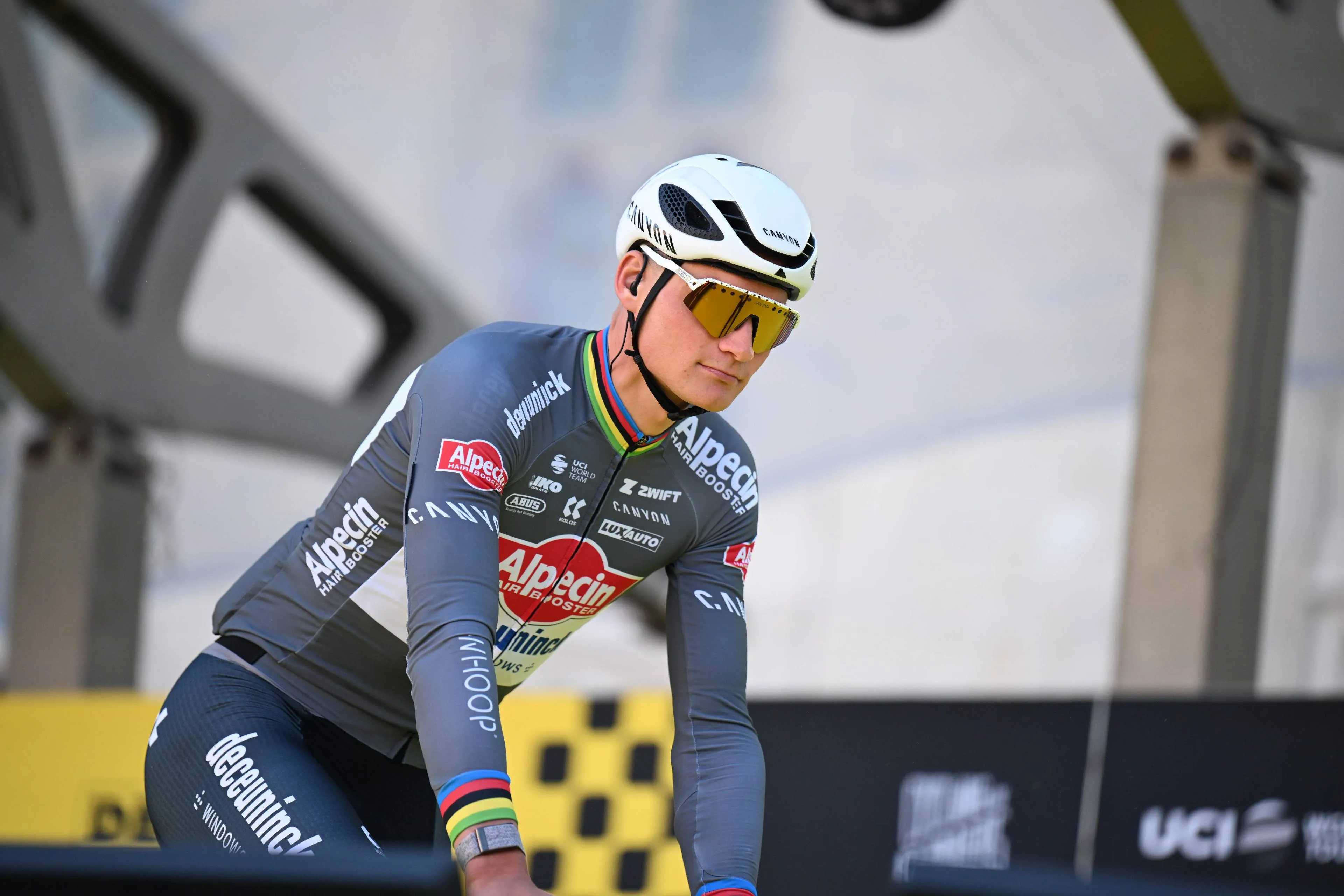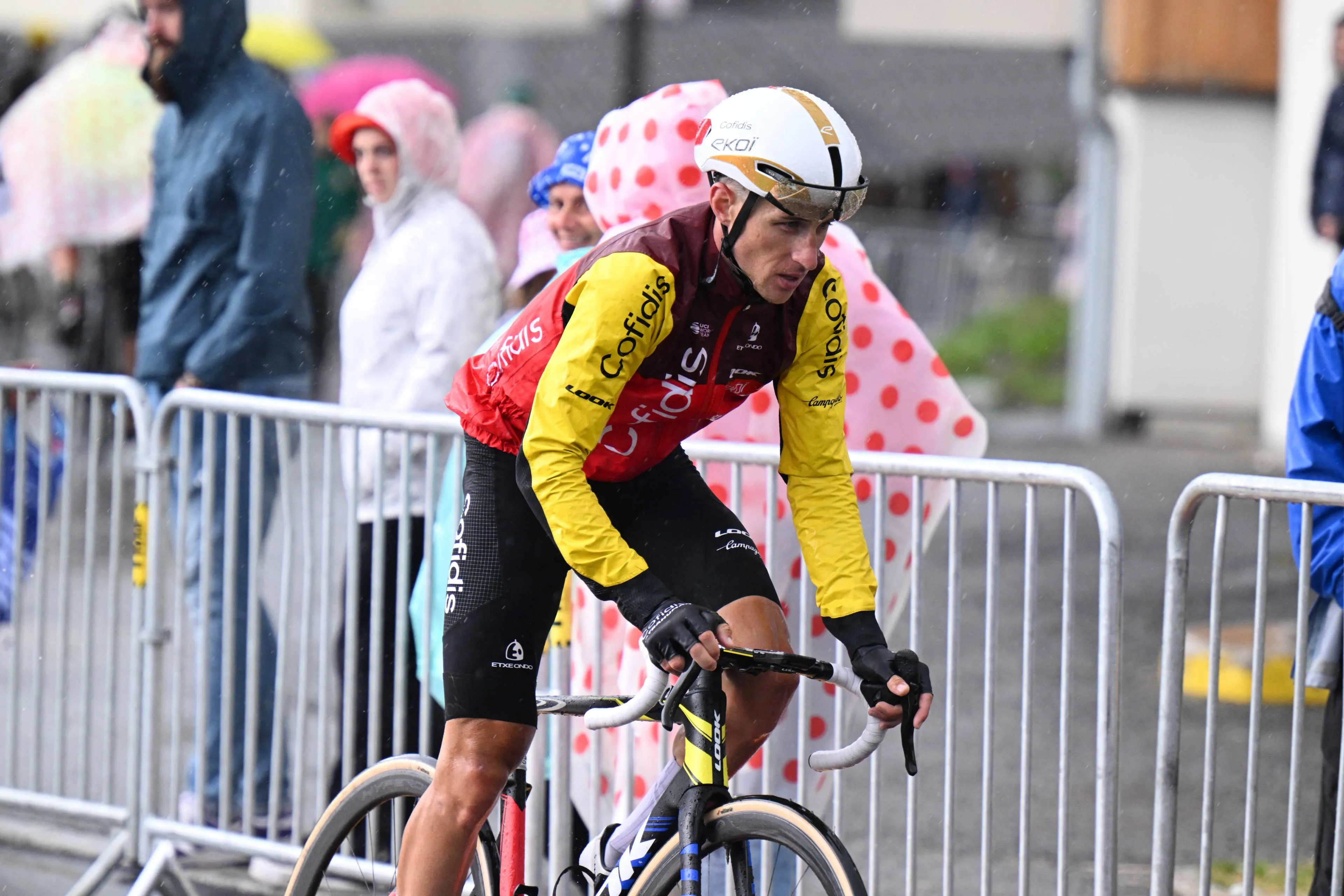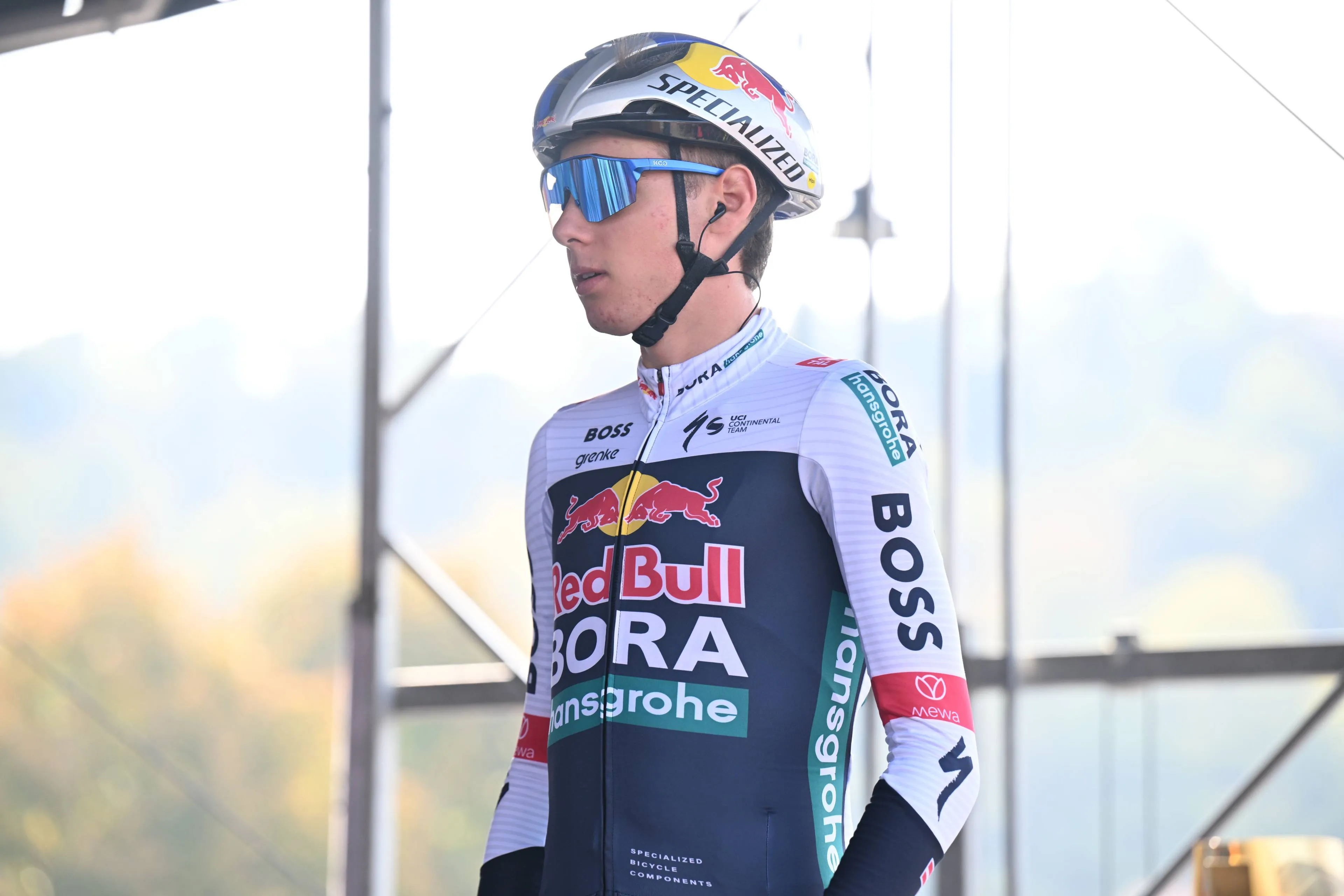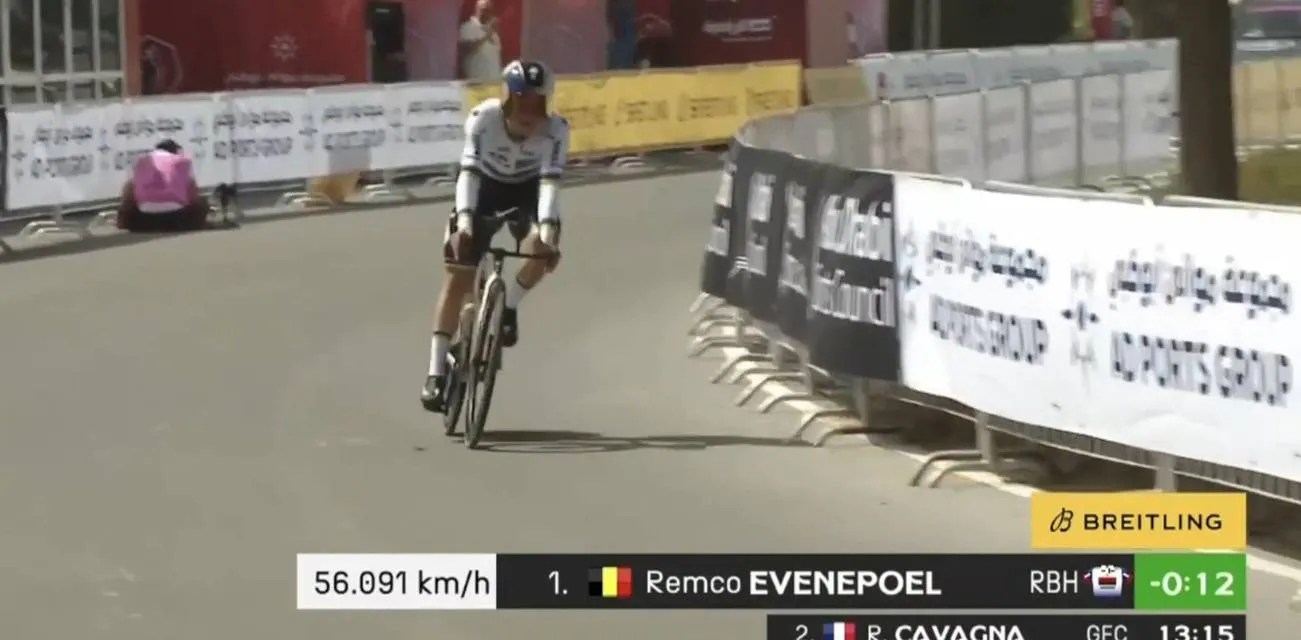PREVIEW | Criterium du Dauphiné 2025 - Pogacar vs. Vingegard vs. Evenepoel on Tour de France preview
CyclingSunday, 08 June 2025 at 09:08

From the 8th to the 15th of June the riders take on the Criterium du Dauphiné. Not only is this race usually the biggest preview ahead of the Tour de France, but it will also have the presence of Tadej Pogacar, Jonas Vingegaard and Remco Evenepoel. We preview the race ahead.
The race kicks off with an hilly stage finishing in Montluçon. Whilst likely not important for the overall classification, the Ardennes-like finale can see some attacks from the GC riders and also those looking to surprise - whilst a sprint can also decide the first yellow jersey.
Read also
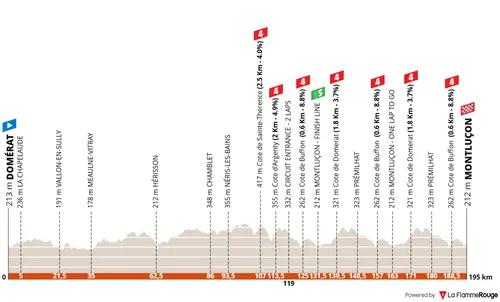
Stage 1: Domérat - Montluçon, 195.1 kilometers
Stage 2 of the race isn't too different, although the start is much more difficult. Breakaways are more possible to succeed, but the end is flatter than the opening day which increases the possibility of there being a bunch sprint deciding the outcome of the day.
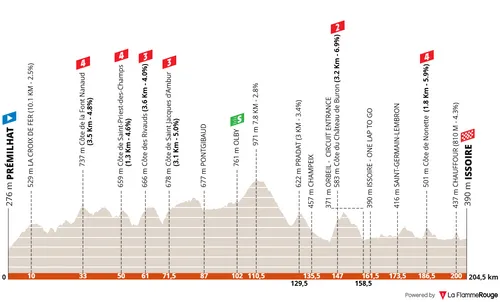
Stage 2: Prémilhat - Issoire, 204.7 kilometers
The third day of racing is not too different than the first ones, only with a tougher start and a slightly more difficult finale. Another day for potential breakaway success, but the truth is that in the steep final ascent there can be some attacks - and the finale can very well be very tactical.
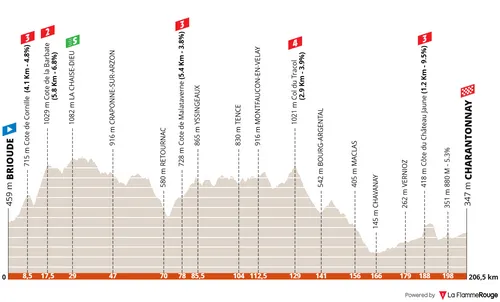
Stage 3: Brioude - Charantonnay, 206.9 kilometers
17 kilometers of time-trialing will make for the first important overall classification day in the race. It will be a hilly one, with a short but steep ascent halfway through the course that won't have a real descent to it.
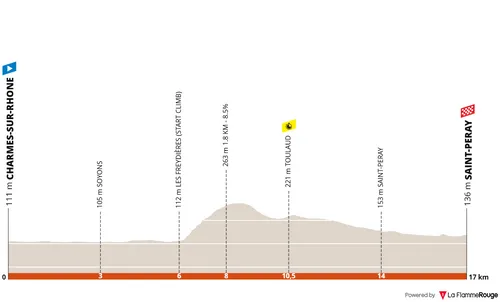
Stage 4 (ITT): Charmes-sur-Rhone - Saint-Peray, 17.4 kilometers
Another tricky day in the Dauphiné, the sixth stage of the race features a flat start but then a few climbs where there can be some pace injected, which would split the peloton. Likely, it's a day for a sprint, but the climbs do pose a question of who will be in contention for the stage.
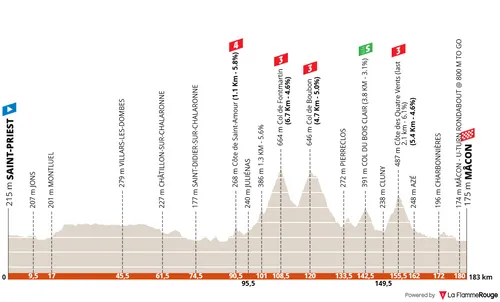
Stage 5: Saint-Priest - Mâcon, 183.1 kilometers
As is usual, the race provides a lot of opportunities for the climbers. There will be three consecutive summit finishes, the first of which in Combloux - where Jonas Vingegaard won a large chunk of time on Tadej Pogacar back in the Tour's 2023 edition. This time around it is a summit finish, and one where we can see some important differences.
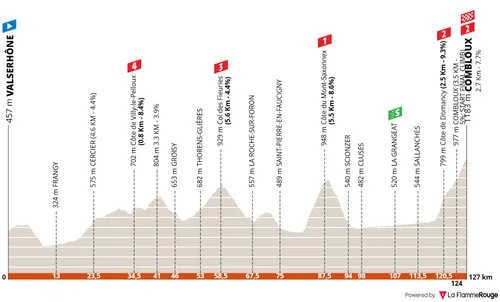
Stage 6: Valserhône - Combloux, 127.1 kilometers
The queen stage of the race, without a doubt. Whilst very short, it's a stage with three massive mountain passes in the Alps. Each of the climbs are very long and it's a day suited to the pure climbers, where the biggest differences can be made.
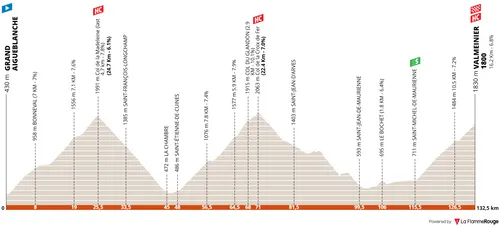
Stage 7: Grand-Aigueblanche - Valmenier 1800, 132 kilometers
The final stage of the race is not as difficult as those that come before it, but it's by no means an easy challenge. The final 133 kilometers will mostly have an uphill trajectory, which means the riders will already arrive at Mont-Cenis fatigued. Whilst the climb is not as hard, the fatigue from the week, day, and the altitude may compensate for it.
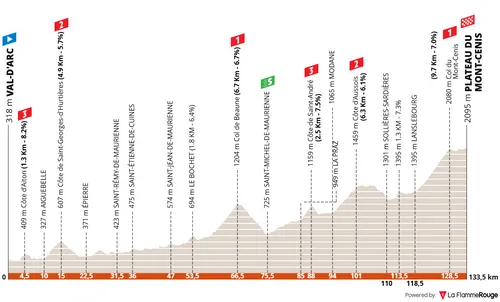
Stage 8: Val d'Arc - Plateau du Mont-Cenis, 133.5 kilometers
The Favourites
Tadej Pogacar - A big moment for the World Champion, and dare I say a race where he will have some pressure. Although he's won the Tour three times, he's never actually won the Dauphiné which comes as a bit of a surprise. He hasn't raced it since 2020 actually, and having chosen it to prepare for the Tour this year comes as a surprise as it seems like he benefits from coming into Grand Tours without racing. So he will have a race where - as always - he will have a high level, and face off his main rivals for the Tour. He's got the Tour block alongside him but he is the only one who can race for the GC. I think that racing aggressively as he usually does would not come to his favour in the long run, and he would best keep his powder dry as much as he can in this race.
Jonas Vingegaard - On the opposite side of the camp, we've seen Jonas Vingegaard race perfect Dauphiné editions both in 2022 and 2023 before going on to win the Tour de France. Visma have a winning formula and that's likely why they come back to the French race. The Dane had a bad fall in March and he hasn't raced since, but lack of race rhythm is no longer an issue for most riders nowadays of this level. The high mountains are the target, he can certainly contest with Pogacar in this race, but Visma do have the tactical advantage having in Matteo Jorgenson a very strong podium candidate and complete rider; and potentially a Sepp Kuss who is looking to finally return to his best level.
Remco Evenepoel - I have mixed expectations for Evenepoel. Last year he won the time-trial but struggled in the mountains, result of not having his ideal race weight yet. But after having lost it after the Dauphiné, he had the absolute best Tour de France he could've hoped for. Quick-Step would likely like to repeat the scenario, but he is reportedly coming into the Dauphiné 1.5Kg lighter than last year. It could be a good sign for his chances in this race (now that he's been able to prepare for real climbing, unlike what he did for the classics), but with almost two months to the end of the Tour, I don't know if he would like to be very sharp yet. On the bright side for him, he will be supported by a very strong pure climber in Valentin Paret-Peintre.
Read also
But the race will feature many more top climbers who will be here to also prepare for the Tour whilst chasing a strong result in a key race for the season. Matteo Jorgenson in March had the very competitive Florian Lipowitz who finished second at Paris-Nice, and the German has been looking so strong that a podium place here is quite possible - and a co-leadership, at worst, is what he should have at the Tour de France. We've got Enric Mas leading in Movistar after his best spring to date.
Carlos Rodríguez, winner of last year's queen stage, will be leading in INEOS Grenadiers; and Bahrain - Victorious come in with both Santiago Buitrago and Lenny Martínez who will be very interesting to gauge against the Tour de France contenders after both of them showed stupendous climbing legs throughout the spring. Eddie Dunbar, Max Poole, Harold Tejada and Guillaume Martin are also amongst the GC contenders to consider for this race.
Read also
Prediction Criterium du Dauphiné 2025 overall classification:
*** Tadej Pogacar, Jonas Vingegaard
** Remco Evenepoel, Matteo Jorgenson, Florian Lipowitz
* Santiago Buitrago, Lenny Martínez, Carlos Rodríguez, Enric Mas, Eddie Dunbar, Max Poole, Harold Tejada
** Remco Evenepoel, Matteo Jorgenson, Florian Lipowitz
* Santiago Buitrago, Lenny Martínez, Carlos Rodríguez, Enric Mas, Eddie Dunbar, Max Poole, Harold Tejada
Pick: Tadej Pogacar
Original: Rúben Silva
Read also
🤩 Répétition générale avant le #TDF2025 sur les routes du #Dauphiné ! Rendez-vous dimanche pour le Grand Départ !
— Critérium du Dauphiné (@dauphine) June 2, 2025
🤩 Dress rehearsal before the #TDF2025 on the roads of the #Dauphiné! See you on Sunday for the Grand Départ! pic.twitter.com/FDANCesDpV
claps 1visitors 1
Just in
Popular news
Latest comments
- Completly agree, Jan was in front of van gils, following Pidcock wheel, it was Van gils who tried to force his way through Jan and the barriers. Are they blaming Jan because he belongs to the richest team that win a lot?
 maria2024202418-02-2026
maria2024202418-02-2026 - Clickbait title, not reality-based. Yawn.itsent18-02-2026
- lame, but probably correctantipodeanpedalfan18-02-2026
- Van Gils rode like wanted to get crashed or way too over confident that he was going to overtake Jan before getting pinched. It was obvious were Jan was going/had to go and MVG had the whole road to give an inch so he would have a chance to overtake on the rightjad2918-02-2026
- Double book this showing with the Melania documentary and you might get 100 people to see it...total !frieders318-02-2026
- Simple solution...stay off the barriers since you might get closed out ! Christen's sprint was legal as he was trying to get into the slipstream of Pidcock.frieders318-02-2026
- I believe Remco now understands that he will have issues reaching the top step as long as Tadej is in the Tour, whiles he's a year junior to Tadej he has had his upper body rebuilt twice now from crashes over the last few years. I think he has a chance to win the Tour in a few more seasons, you can only prepare yourself as best you can and try. He said he needs to race some more one week stage races, he should, he can probably win them all. I also believe Remco should aim for another Vuelta if he comes out of the Tour in good form and maybe he should think about the Giro again for next season. This is potentially Tadej's fifth Tour win coming up this year, no one is going to derail that unless he falls off the bike or gets really sick.awp17-02-2026
- Not only will the great narcissist get his voice, but he'll benefit financially from this as well. Who says that cheating and lying your way to victory doesn't pay?
 santiagobenites17-02-2026
santiagobenites17-02-2026 - It'll make a good double feature with the Michael Jackson soft focus biopic.LumbarDeniro17-02-2026
- Yeah, whilst MVDP would never break a bone on the MTB... 😂Sexass17-02-2026
Loading
1 Comments
